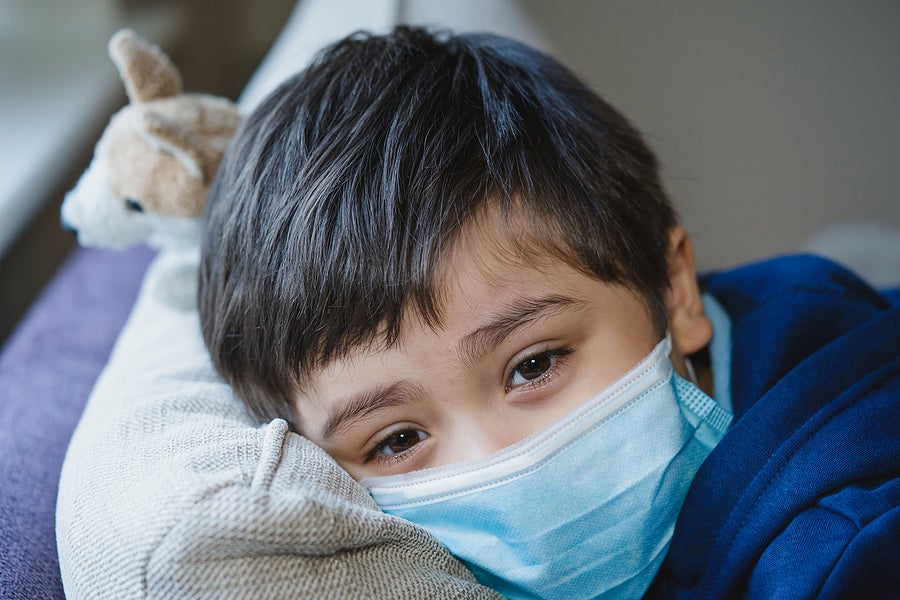Blog
-
Shifting the Paradigm: How Medicaid Can Strengthen Behavioral Health Crisis Response
Police respond to a wide range of situations beyond crimes — everything from traffic stops to domestic disputes to homelessness. They are also generally the first responders in situations involving mental health or substance use crises. This unexpected, largely unrecognized role reflects an unmet need for behavioral health care, gaps in community-based services for mental…
-
Georgetown University CCF Welcomes Leonardo Cuello To Our Team
I am excited to share more good news. Thanks to some new funding, CCF is expanding and Leonardo Cuello, J.D. will be joining CCF and the faculty of the McCourt School of Public Policy on July 1st. Leo is well known to many of us (and no doubt to many regular readers of SayAhhh!) from…
-
Georgia and Missouri Postpartum Medicaid Waiver Approvals Promote Limited Coverage
As Say Ahh readers know, there have been bursts of Section 1115 demonstration activity since the start of the year. April was no different, bringing another flurry of actions from CMS. This time, however, there were some new demonstration approvals that promote coverage, albeit in a more limited way than we would have liked to…
-
Proposals to Cover All Kids Gain Momentum in State Legislatures
For years we’ve known the important role health insurance plays in making sure kids have access to the care they need, and how Medicaid and CHIP are critical sources of coverage for millions of children and families. While most uninsured kids are eligible but not enrolled in Medicaid or CHIP, these programs are not open…
-
Texas Medicaid Waiver a Diversion in Crisis of the Uninsured
Confused about Texas Medicaid funding? Understandable. The April decision that Texas must “redo” the process to extend our Medicaid “1115 waiver” funding past 2022 — an extension granted by the Trump administration despite the lack of a required public comment process — is important but not calamitous. Texas’ waiver agreement, approved by President Barack Obama…
-
Medicaid Managed Care and Children with Disabilities: A Cautionary Tale
Loyal fans of the Say Ahhh! blog know that Medicaid is the nation’s largest health insurer for children, covering over 35 million. They also know that Medicaid does not exclude any child from coverage on the basis of a pre-existing condition; in fact, some children qualify for Medicaid because they receive Supplemental Security Income (SSI)…
-
Low-Wage Uninsured Workers: Who are They and Where do They Work?
Allie Corcoran and I have embarked on a new research project looking at the occupations and industries of low-wage, uninsured workers in states that have not expanded Medicaid with American Community Survey data.[1] As readers of the SayAhhh! blog know, there are 12 states that have not expanded Medicaid and have higher uninsured rates for…
-
New Factsheet Shows that Cashiers, Housekeepers and Cooks Are Among the Mississippians that Would Benefit Most from Medicaid Expansion
CCF and the Mississippi Center for Justice recently jointly released the first in a series of factsheets dedicated to examining the landscape of low-wage, uninsured workers in states that have not yet expanded Medicaid. The factsheet, titled “A Profile of Mississippi’s Low-Wage Uninsured Workers” comes as the American Rescue Plan provides new incentives for states…
-
Medicaid Wars: Litigation Risk (Episode III)
It turns out that unwinding illegal Medicaid policies is complicated. There’s this thing called “litigation risk”. Executive Branch agencies have to make reasoned decisions and stay within their statutory guardrails; if they don’t the federal courts may rein them in. As it happens, litigation risk goes both ways. The Unwinding began with the issuance of…
-
Time-Limited Opportunity to Increase WIC Benefits for Moms and Kids
The American Rescue Plan (ARP) provided funding for a range of programs to address the COVID-19 pandemic and the hardships it has inflicted on millions of families in the United States. One of the many pro-family provisions in the new law allows states to temporarily increase the fruits and vegetables benefit to women and children…
-
Florida Legislature’s Medicaid Folly
The Florida Legislature is about to make final decisions about the state’s budget in the next few weeks – decisions that are constructed on false fiscal assumptions — with reckless options on the table that would weaken the state’s health care system and lead to more uninsured Floridians if finalized. During what we all hope…
-
Biden Administration Must Rise to the Challenge and Protect Migrant Children
Vice President Harris has been tasked with untangling myriad migration challenges at the U.S. southern border, including addressing the root causes of migration from Central America. The list of possible root causes is long, and solving problems such as political instability, violence, deep poverty, and devastation brought on by natural disasters is not going to…
-
Hybrid Approach to Resolving Payment Disputes Breaks Legislative Stalemates Over Balance Billing, How Will the No Surprises Act Affect These New State Laws?
In December 2020, Congress enacted the No Surprises Act, which is designed to protect all Americans from surprise medical bills from out-of-network providers. But many states did not wait for federal action. Seven states enacted new surprise billing laws in 2020; five of these provide comprehensive protections. These laws raised the total number of states with protections to 33, including…
-
HHS Secretary Becerra Approves Illinois Waiver Request to Extend Postpartum Medicaid Coverage
New mothers in Illinois will now be able to stay eligible for Medicaid and CHIP coverage for one year after delivery under a Medicaid Section 1115 waiver approved today by the Centers for Medicare and Medicaid. The approval allows Illinois to receive federal matching funds for providing an additional 10 months of pregnancy-related Medicaid and…
-
Advancing Postpartum Coverage in Medicaid: Waiver or SPA?
The recently enacted American Rescue Plan Act has many new opportunities and important provisions that we are still absorbing and unpacking. One key change, as readers of SayAhh! know, is the new state option to provide 12 months of postpartum Medicaid and CHIP coverage to women after the end of their pregnancy, well beyond the…
-
California’s Medicaid Breakthrough: An Opportunity to Advance Children’s Social and Emotional Health
By Sarah Crow and Christina Altmayer Revamping Medicaid policies to improve young children’s social and emotional health and address health care inequities is particularly critical in California, where over half of children ages 0 to 5 have Medicaid coverage (known as Medi-Cal, in California), and two-thirds are children of color. California ranks near the bottom…
-
Some States’ Letters to CMS on Medicaid Work Requirements Double Down
Last month, CMS began taking steps to get rid of Medicaid section 1115 work requirement waivers as my colleague Joan Alker has written about. The Biden Administration sent letters to states with approved work requirements that “preliminarily” disapproved the policy on the basis of the COVID-19 pandemic and uncertainty of its aftermath on health and…
-
Implementing American Rescue Plan’s 12-month Postpartum Medicaid Coverage: Federal and State Actions
Federal matching funds for the American Rescue Plan Act’s new state Medicaid option to provide 12 full months of postpartum coverage won’t be available *officially* to states until April 2022. (Say Ahhh! Readers know that the Families First Coronavirus Response Act requires states to keep all Medicaid beneficiaries enrolled, including postpartum women, so no coverage…
-
Medicaid Wars: Rescind and Withdraw (Episode II)
The Biden Administration has a long list of bad Medicaid policies to unwind. As chronicled in Episode I, the groundwork for the unwinding was laid in a Presidential Executive Order, “Strengthening Medicaid and the Affordable Care Act,” issued on January 28. Among other things, the E.O. directs the Secretary of HHS to review section 1115 demonstrations and…
-
House Hearing Will Examine the Looming Fiscal Cliff for Medicaid Programs in the Territories
On Wednesday, March 17, 2021, the Health Subcommittee of the House Energy and Commerce Committee will hold an important hearing on “Averting a Crisis: Protecting Access to Health Care in the U.S. Territories.” In December 2019, Congress provided Puerto Rico and the other territories — American Samoa, Guam, the Northern Mariana Islands, and the U.S.…





















